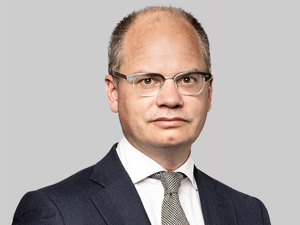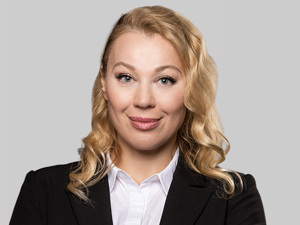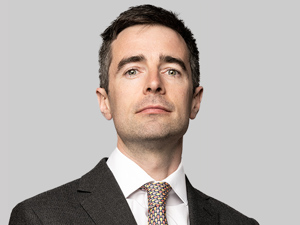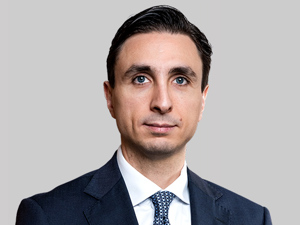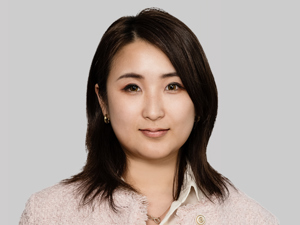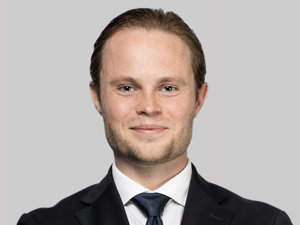The Balkans fund delivered a solid return of 7.0% in the third quarter of 2025, reflecting continued resilience across Southeastern European markets. The fund’s performance was driven by strong gains in Slovenia (+17.0%), Greece (+9.6%), Hungary (+8.8%), and Romania (+8.4%), while our Turkish holdings (-0.3%) weakened amid persistent macroeconomic imbalances.
Greece continued to demonstrate solid economic momentum, with GDP growth projected at 2.2% for the year. The economy was supported by resilient domestic consumption, a strong tourism season, and sustained investment activity backed by EU structural funds. Inflation moderated to around 3.1%, allowing the government to maintain its fiscal outperformance, and achieving a primary surplus of approximately 3.5% of GDP. The equity market responded positively, with the Greek index gaining 9.6% during the quarter. The best performer was Metlen, up 15%, after a long-awaited relisting on the London stock exchange, gaining access to a much larger investor base and potential BMs. We like the mid-to-long-term story of Metlen, which targets EUR 2bn EBITDA by 2028, offering EBITDA CAGR of ~17%, with new projects in energy, defence, and metals, including a new gallium project, strategic metals for chips, radar and other defence systems, as well as circular metals. We recognise the execution risks of this strategy, but we think a P/E of 10x is attractive compared to European industrials at 23x, especially with EPS growth of 17% resulting in an attractive PEG ratio of 0.6x. We also travelled to Greece in August, a trip that confirmed our positive view of the market. Optima bank continued to outperform and was up 25%. The company maintains the highest ROE among European banks, at 24%, and is expected to have an EPS CAGR of 19% at 2026e P/E 9x, which is very attractive compared to the much lower growth of other banks. We kept our position in Optima, but sold some outperforming, lower-growth Greek banks, and picked up the cheapest bank at the moment – Piraeus - trading at just 1x book value and 6.9x P/E.
Slovenia was the best-performing market in the region, surging 17.0% as our holding NLB recorded the strong price performance, up 17%. We continue to like NLB on potential strong volume growth in the region for the coming years, while the stock trades at 7.7x P/E, 1x P/BV and ROE of 14% for 2025, offering 8% DY.
Romania posted a quarterly gain of 8.4%, after a weaker 2Q. We continue to invest there in long-term high-value-adding stocks with private ownership and high return on capital, like Banca Transilvania (ROE 22% and P/E 7.6x) and MedLife (EV/EBITDA 10.6x EBITDA growth 21%).
Hungary posted an 8.8% gain for us, despite a sluggish macro environment characterised by weak external demand and cautious consumer behaviour. Our top pick there, OTP Bank, gained 9% on the back of good reported numbers and a still attractive valuation, as the bank trades at 7.2x P/E, 1.3x P/BV, with 20% ROE for 2025.
Elsewhere, we added to our Raiffeisen stock, which was up 13%, on the back of better-than-expected results. Moreover, the stock is among those that could benefit in the case of an end to the war in Ukraine or any ceasefire, with potentially less pressure related to Russian exposure from regulators and/or an easier path to disposal of Russian operations. The company (ex-Russia) trades at 7.4x P/E, 0.65x P/BV, with 9% ROE for 2025, and we see potential for further rerating as any equity release from Russia would mean a significant upside.
Turkey remained a source of volatility, with our holdings declining 0.3% due to macro, policy, and political uncertainty being flat YTD compared to other eastern European markets. We still see weak earnings momentum among companies and margin pressure in consumer sectors. Inflation-adjusted profits for non-bank companies declined by 11% year-on-year, while banks faced lower net interest income and lacked the trading gains seen in Q1. Despite a supportive macro backdrop, with 4.8% GDP growth, high interest rates and cautious investor positioning limited any equity upside. Moreover, the hopes of a strong recovery in H2 2025 were shattered by a negative surprise in the September inflation print, reducing expectations of significant 2025 rate cuts (down to 250bps cuts by the end of 2025 instead of 450bps), which is bad news for banks and all companies needing capital for growth and suffering from the 41% interest rate. Our positions in Mavi and Akbank suffered in the high interest environment, down 18% and 13%. We gained 23bps in Do&Co, a company that continued its strong run, up 25% after 33% EBITDA growth and surprising the market with 8% and 44% profit growth as the company continues to see strong load factors and keeps adding new airline catering clients.
Looking ahead, we remain constructive towards the Balkan region. Greece offers structural growth opportunities, supported by fiscal discipline, reform momentum and EU fund inflows. Romania and Slovenia are well-positioned to benefit from resilient domestic demand and improving investment flows. Turkey continues to pose challenges, but we maintain selective exposure to high-quality names with strong fundamentals. Our portfolio remains focused on companies with robust balance sheets, sustainable earnings growth, and disciplined capital allocation. We continue to engage actively with management teams, monitor macro developments, and adjust positioning to capture upside while managing downside risks. The Balkan region remains a compelling investment destination, offering diversification, attractive valuations, and long-term growth potential.
Performance in USD net of fees.
This publication is not directed at you if we are prohibited by any law in any jurisdiction from making this information available to you and is not intended for any use that would be contrary to local laws or regulations. Every effort has been made to ensure the accuracy of the information, but it may be based on unaudited or unverified figures or sources. The information should not be used as the sole basis for an investment. Please read the Prospectus and the KID, which are available on the fund page.





